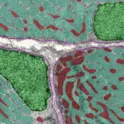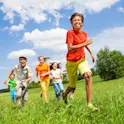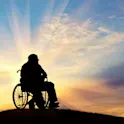Cycling in school improves teenagers’ mental health, but wider social factors may impact benefits
by Deborah Pirchner, Frontiers science writer Image: Eric Arce for Outride Physical activity promotes mental well-being and finding activities that people are keen to engage in is key. For teenagers, cycling might be one of them – combining fun, competition, and transportation needs. Researchers in the US have examined if taking part in an in-school cycling program improves middle schoolers’ mental health and found positive effects. While they concluded that cycling programs may be a pathway to improved mental well-being of teenagers, they also noted that the conditions in which students are born and live in determine mental and physical well-being significantly. Physical activity has positive effects on mental health and yet, activity rates are declining. This is particularly worrying because the mental well-being of teenagers continues to deteriorate. In the US, one in six school children is diagnosed with some type of mental disorder. Riding bikes is a promising approach to introduce school-aged children to physical activity. Now, researchers in the US have investigated how adolescents’ psychosocial well-being changed after participating in a school-based cycling program. “Participation in a school cycling education program during the Covid-19 pandemic was associated with improved psychosocial well-being amongst middle schoolers in the US,” […]














